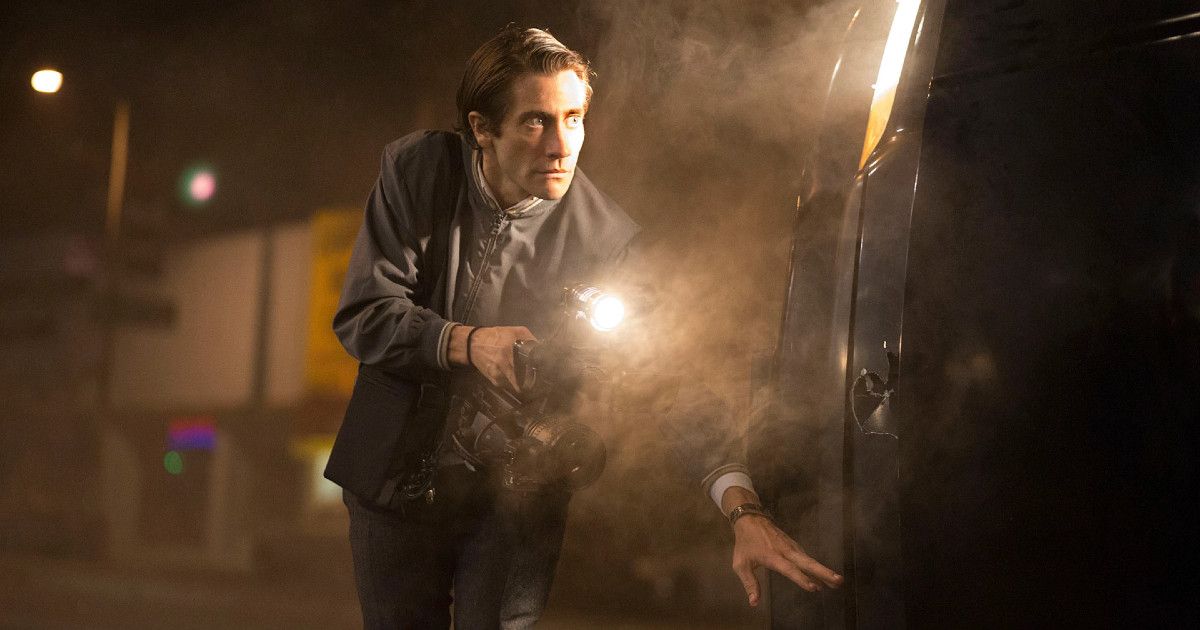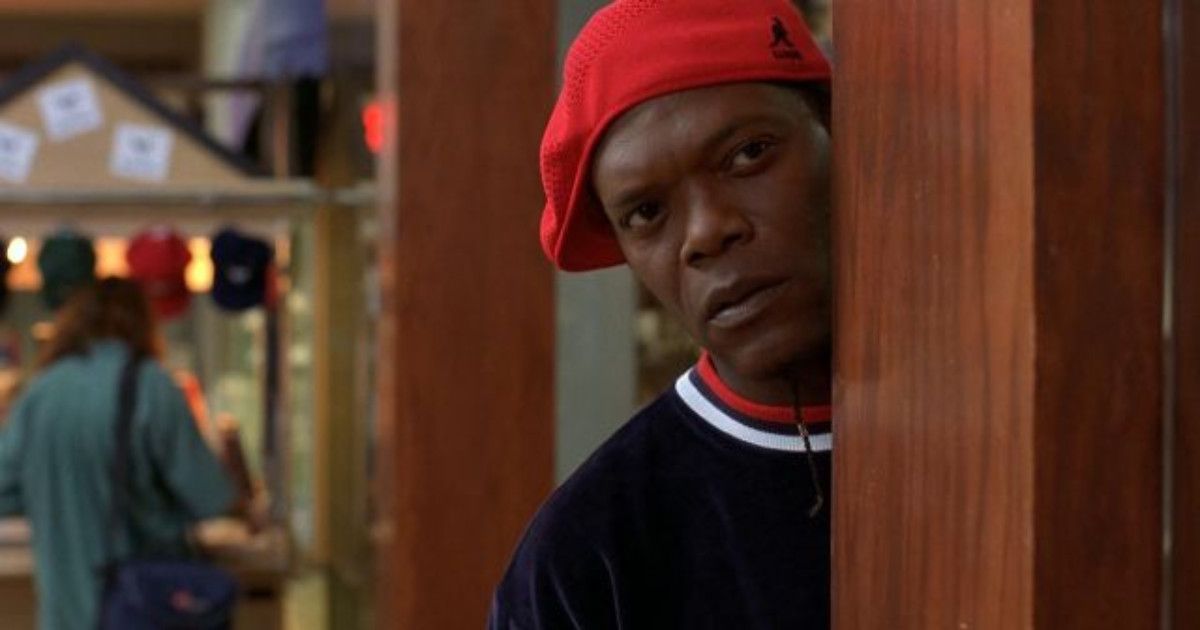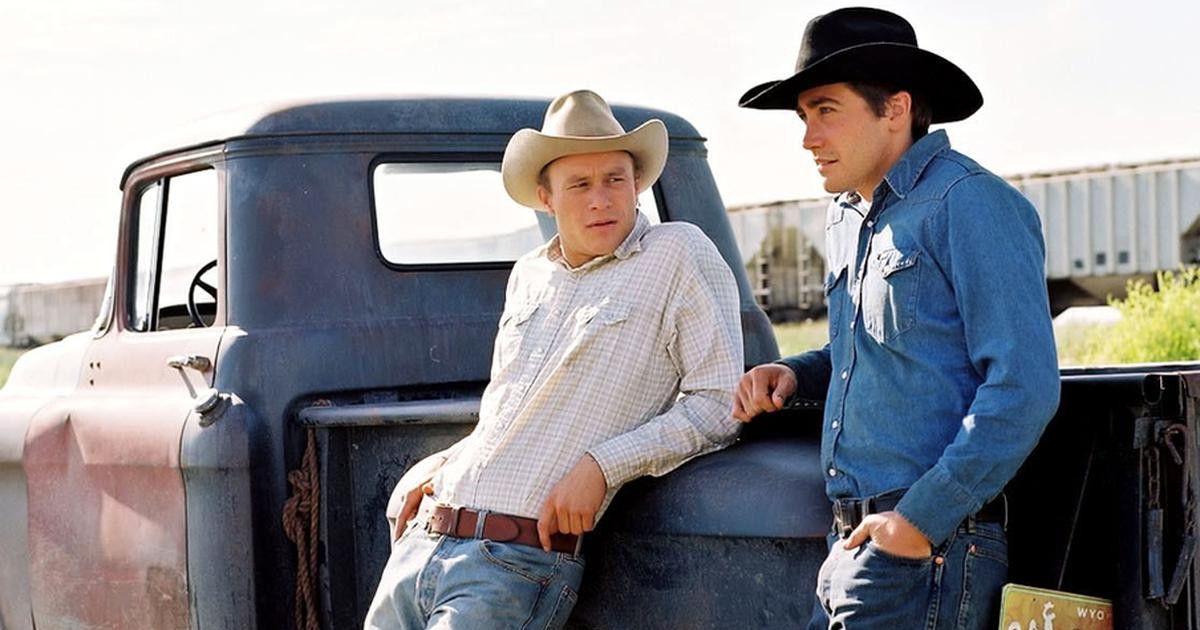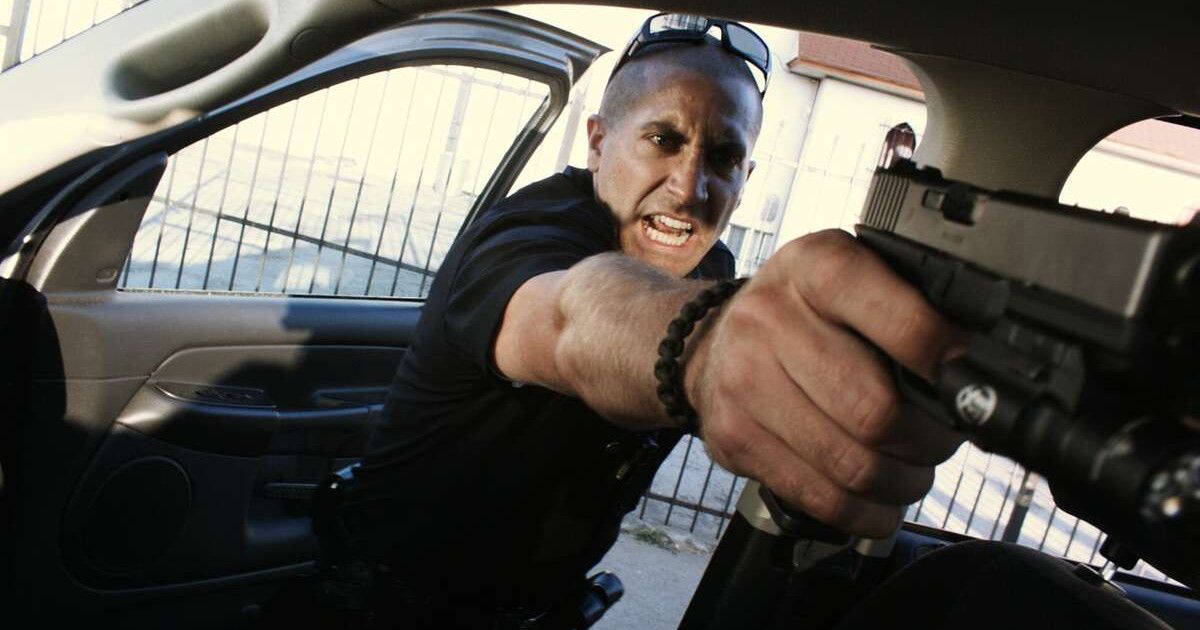As one of the more prolific American actors of the 21st century, Jake Gyllenhaal has starred in dozens of award-winning hits, along with a few blockbusters here and there. And his status as an A-lister came by dint of his natural-born talent that manifests in front of a camera. You’re undoubtedly familiar with his filmography to some extent, but if not, know this to start: he’s performed to a legendary degree in some of the biggest movies Hollywood’s had to offer over the past twenty or so years.
And in the coming months, two more films will be releasing in which he’ll be the star: The Covenant (2023) and Road House, both of which put action at the forefront of their narratives opposed to emotional character development, clever filmmaking tactics, or even thematic resonance. So, don’t expect any award nominations for Gyllenhaal with either of those projects.
But he’s put in work throughout the years from a standpoint of sheer talent. And, to be frank, he hasn’t garnered anywhere near the recognition he deserves as a true talent of the industry. The Academy of Arts and Sciences, most prominently, have consistently failed to acknowledge his skills, and it’s about time that they do.
Not only has never won, but he’s only ever received one nomination at the Oscars throughout his career, which started in the early 90s and launched into the stratosphere of superstardom a decade later with Donnie Darko (2001). There’s an argument there, right off the bat, that he could have been nominated for Best Actor. And while none have been shut out quite to the extent of Gyllenhaal, several other actors throughout history have been consistently snubbed by the Oscars, too.
Other Prominent Actors Who’ve Been Snubbed by the Academy
Out of the gate, there are plenty of popular performers throughout Hollywood history that have only been nominated for a single Academy Award. And perhaps the most prominent example — at least, by today’s standards — comes with Samuel L. Jackson. He was only nominated for Pulp Fiction (1994), and lost out to Martin Landau in Ed Wood (1994). That’s a massive snub right there, but it’s also worth noting that Jackson could have been nominated for A Time to Kill (1996), Jackie Brown (1997), and even Eve’s Bayou (1997), too.
Some of those cases are stronger than others, but the argument stands nonetheless. Jackson was snubbed to a consistent degree. As for other stars only nominated for one Oscar, though — how about Bill Murray? He received a nomination for Lost in Translation (2003), and lost out to Sean Penn in Mystic River (2003). He could have also been nominated for Rushmore (1998), but that’s not a hill many are willing to die on. Robert Mitchum was only nominated for one Oscar throughout his career, as well — Best Supporting Actor for The Story of G.I. Joe (1945).
But then, there are guys like Edward Norton, who’s been nominated for three Oscars in total — Best Supporting Actor for both Primal Fear (1996) and Birdman (2014), and Best Actor for American History X (1998). Alas, he came up short every time. And there’s an easy argument that he should have won for both Primal Fear and American History X. That said, J.K. Simmons undoubtedly deserved Best Supporting Actor for his role in Whiplash (2014). So, no snub for Birdman.
Cary Grant was nominated for two Oscars – Best Actor for Penny Serenade (1941) and None but the Lonely Heart (1944). Despite his four collaborations with Alfred Hitchcock, he was never noticed by the Academy for any of those particular performances — not even North by Northwest (1959). Charlie Chaplin received one nomination for acting thanks to his work in The Great Dictator (1940), and two Honorable Academy Awards: one in 1929 and another in 1972,
Some actors stand out from the pack, like Peter O’Toole with a whopping eight total acting nods. He was mostly known for his roles as T.E. Lawrence in Lawrence of Arabia (1962), King Henry II in both Becket (1964) and The Lion in Winter (1968), and Arthur Chipping in Goodbye, Mr. Chips (1969). He was nominated for each of those, but they all came up short in the end.
Then, there are performers like Steve Buscemi who have never received an Oscar nomination in general despite impressive performances in films such as Reservoir Dogs (1992), Fargo (1996), and Ghost World (2003). But ultimately, only one actor can claim the title of “Most Snubbed” in Oscars history, and that undoubtedly goes to Jake Gyllenhaal.
The One Nomination of His Career – Brokeback Mountain
Throughout his prolific career, Gyllenhaal only has one Oscar nomination to his name: one for Best Supporting Actor thanks to his role as Jack Twist in Brokeback Mountain (2005). For what it’s worth, the film itself had more nods (eight) than any other from that year’s ceremony. And of those nominations, it won three: Best Director for Ang Lee, Best Original Score for Gustavo Santaolalla, and Best Adapted Screenplay for both Larry McMurtry and Diana Ossana.
A landmark achievement for LBTQ-themed filmmaking, Brokeback Mountain follows Jake Gyllenhaal’s character Jack Twist alongside Ennis Del Mar (played to an equally revered degree by the late, great Heath Ledger) as they are hired to herd sheep for a foreman. Soon into their endeavor across the titular mountain, they become romantically involved and develop one of the most iconic cinematic relationships of the twenty-first century.
They both picked up nods from the Academy Awards for their work therein, though neither of them walked away with a golden statuette. As for Gyllenhaal’s category, though: other nominees for Best Supporting Actor that year included Matt Dillon in Crash (2005), Paul Giamatti in Cinderella Man (2005), and William Hurt in A History of Violence (2005). There’s a solid case that Gyllenhaal performed in a more impressive and standout fashion than all of those actors — especially Matt Dillon, in full candor. But in the end, he didn’t get the win.
That honor went to George Clooney for his role as Bob Barnes in Syriana (2005). A political thriller written and directed by Stephen Gaghan, the film chronicles multiple storylines that all feature an identical backdrop of the Middle Eastern oil industry. And it was definitely a well-received project overall, even receiving a nomination for Best Original Screenplay on top of the acting win.
And although Clooney also picked up the honor of Best Supporting Actor at that year’s Golden Globes, the BAFTAs actually did award it to Gyllenhaal. So, really, this is far from the biggest individual snub in Oscars history. But it isn’t just wins that can classify as a snub, as plenty of the most agreed-upon blunders by the Academy are a lack of respective nominations. That’s the biggest element at play with regard to the many robberies of Gyllenhaal — the vast majority were for a lack of nominations.
Roles He Could Have Been Nominated For
The first argument to make — Zodiac (2007) by David Fincher — is also one of the loosest, but there’s still a clear-cut case to be considered. Firstly, it’s worth noting that no one from this year was ever beating Daniel Day-Lewis for his role as Daniel Plainview in There Will Be Blood (2007). He entirely deserved the win, let alone a nomination.
But George Cooney for Michael Clayton (2007) wasn’t exactly game-changing. Johnny Depp’s nomination for his titular role in Sweeney Todd: The Demon Barber of Fleet Street (2007) was undoubtedly warranted, but still debatable. And while Viggo Mortensen and Tommy Lee Jones also put forth respectable efforts in Eastern Promises (2007) and In the Valley of Elah (2007) respectively, Gyllenhaal could’ve easily been nominated over either one.
The next film to note is End of Watch (2012), which would have been for Best Actor. As Brian Taylor, a police officer who carries a camera to document his day-to-day activities, he shared a remarkable amount of chemistry with both of his primary co-stars: Michael Peña and Anna Kendrick. Their respective rapports were highlights of the film along with its masterful, found-footage style camerawork that blended perfectly with more cinematic shots of narration.
But his competition that year was admittedly pretty stiff. Daniel Day-Lewis was back with another win — this time for his role as the titular character in Lincoln (2012). Then, Joaquin Phoenix undoubtedly deserved his nomination for The Master (2012), and so did Denzel Washington for Flight (2012).
None of this is to say that Bradley Cooper (for Silver Linings Playbook, 2012) or Hugh Jackman (for Les Misérables, 2012) were unworthy of their nominations. But still, there is a case to be made for Gyllenhaal and his performance in End of Watch. Perhaps the weakest argument regarding Gyllenhaal’s snubs at the Oscars, though, comes with Enemy (2013), directed by Denis Villeneuve.
He would have been acknowledged for Best Actor, but his contemporaries definitely showed up to compete. Matthew McConaughey won for Dallas Buyers Club (2013), and while there are definitely instances throughout the association's history of winners even being unworthy of a nomination, this definitely wasn’t one of them.
And others like Leonardo DiCaprio for The Wolf of Wall Street (2013), Christian Bale for American Hustle (2013), Bruce Dern for Nebraska (2013), and Chiwetel Ejiofor for 12 Years a Slave (2013) all deserved their seats at the ceremony. But without naming anyone specifically, a couple of those guys could have forfeited their spots to Gyllenhaal.
That was the hardest case to make, and Nocturnal Animals (2016) is only easier by the slightest of margins. For Best Actor that year, Casey Affleck walked away with gold for his work in Manchester by the Sea (2016). Then, there was also Andrew Garfield for Hacksaw Ridge (2016), Viggo Mortensen for Captain Fantastic (2016), Denzel Washington for Fences (2016), and Ryan Gosling for La La Land (2016).
Those are all revered works, but again, Gyllenhaal’s efforts in Nocturnal Animals could have been in the running. He was nominated that year at the BAFTAs, after all. Those same actors from above were his fellow nominees (except for Denzel, which was crazy in itself), with Affleck once again coming out on top. Again, hard to argue. In the end though, there are three roles from Gyllenhaal’s ambitious career that should have undeniably garnered nominations in their respective categories.
Roles He Should Have Been Nominated For
As already mentioned, Gyllenhaal probably should have received a nomination for his role as the eponymous character in the cult classic, psychological thriller Donnie Darko. However, a few things worked against him: the genre wasn’t exactly Oscar friendly, firstly. But also, Gyllenhaal was pretty unknown, and so was the project itself.
At the Oscars that year, nominations for Best Actor included Denzel Washington for Training Day (2001), Russell Crowe for A Beautiful Mind (2001), and Will Smith for Ali (2001). Sean Penn was there too for I Am Sam (2001), as was Tom Wilkinson for In the Bedroom (2001), but barring Denzel, Gyllenhaal arguably outshone everyone.
One of the most impressive and underrated performances of Gyllenhaal’s career came a decade later as Detective Loki in Prisoners (2013). A psychological thriller directed by Denis Villeneuve (who also made the aforementioned Enemy in this same year), it featured career-defining efforts from each member of its star-studded cast. But still, Gyllenhaal’s character stood out with his idiosyncratic facial tics and tragic backstory that facilitated an impressive display of emotion from the underrated actor.
With regard to the Oscars: aside from that year’s winner — Jared Leto, thanks to his impressive efforts in Dallas Buyers Club (2013) — Gyllenhaal could have taken the spot of any given nominee for Best Supporting Actor. Barkhad Abdi in Captain Phillips (2013) and Michael Fassbender in 12 Years a Slave (2013) were obviously worth writing home about, but they didn’t exactly stand the test of time.
As for Bradley Cooper in American Hustle (2013) and Jonah Hill in The Wolf of Wall Street (2013): it takes once-in-a-lifetime acting facilities to do what they did. No doubt. But there’s also a certain degree of comedy embedded in their roles that made it somewhat jarring to watch the careful, poignant efforts of Gyllenhaal go unnoticed while those two sat front row with smiles on their faces and nominations to their names.
Five nods for Best Actor were doled out at the 87th Academy Awards — most prominent was to Eddie Redmayne, who won as Stephen Hawking in The Theory of Everything (2014). Considering he went home with gold, there’s no doubt he deserved a nomination in the first place — as did Michael Keaton, who was nominated for his titular role in Birdman (2014).
Then, there are the three others: Steve Carell for Foxcatcher (2014), Bradley Cooper for American Sniper (2014), and Benedict Cumberbatch for The Imitation Game (2014). From a sheerly qualitative standpoint, none of those guys deserved the nomination to the extent of Gyllenhaal — everyone knows it, and that includes the Academy. And not only should he have been nominated, but Gyllenhaal should have even won the award over Redmayne.
For his role as stringer Lou Bloom in Dan Gilroy’s thriller Nightcrawler (2014), he was nominated at the BAFTAs (but lost to Redmayne), the Golden Globes (again, lost to Redmayne), and the Independent Spirit Awards (at which he lost to Keaton for Birdman). All snubs in themselves, one could argue. But what’s more is that this was the third year in a row in which Bradley Cooper was nominated over Jake Gyllenhaal: first for Silver Linings Playbook over End of Watch, then American Hustle over Prisoners, and finally American Sniper over Nightcrawler. At the end of the day, Gyllenhaal sitting completely out in the cold at the 87th Academy Awards remains one of the greatest snubs in the ceremony’s history. He acted his heart and soul out in Nightcrawler — as he did in Donnie Darko, Prisoners, and several other projects throughout his illustrious yet underappreciated time on the Hollywood block. The fact that Brokeback Mountain remains his only Academy Award nomination after all these years undeniably renders him the most snubbed actor in the association’s history.




